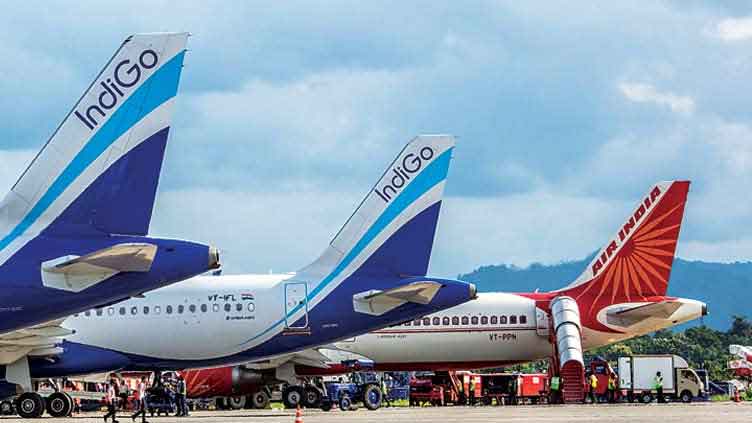Modi's policies backfire: Economic blow to Indian aviation and trade

World
While aiming to put pressure on Pakistan, Indian govt's decisions have disrupted its own sectors
NEW DELHI (Dunya News) - After the deadly attack on Indian-occupied Kashmir’s Pahalgam area, Indian Prime Minister Narendra Modi’s aggressive attitude towards Pakistan has unforeseen impacts for India’s economy.
While aiming to put pressure on Pakistan, the Indian government's decisions have disrupted key sectors, particularly aviation and cross-border trade.
In the fiscal year 2023-24, India conducted trade worth Rs3,886 crore through the Wagah border. This crucial trade route now stands closed, affecting Indian economy significantly.
The Indian aviation industry, one of the fastest-growing in the world, is also facing severe turbulence. Reports from Indian media highlight the need for 30,000 new pilots over the next 20 years. Yet, recent policy moves are creating hurdles that may severely hamper the sector’s growth.
A major blow came regarding Pakistan's decision to close its airspace to Indian flights - a move that affects approximately 400 flights daily. About 100 Indian aircraft previously used Pakistani airspace, particularly for routes to the UAE. The closure has led to longer flight paths, increased fuel consumption, extended flight durations, and higher operational costs.
The cancellation of flights from Delhi to Kabul has further added to the industry's woes. Airlines such as Air India, Air India Express, and IndiGo are now forced to reroute via the Arabian Sea, significantly increasing fuel costs and flight times.
Air India is currently the worst-affected carrier, suffering a monthly loss of Rs100 crore. According to the Times of India, the airline has incurred a total loss of Rs372 crore due to flight cancellations, route diversions, and additional fuel expenses - equating to a daily loss of Rs6 crore.




